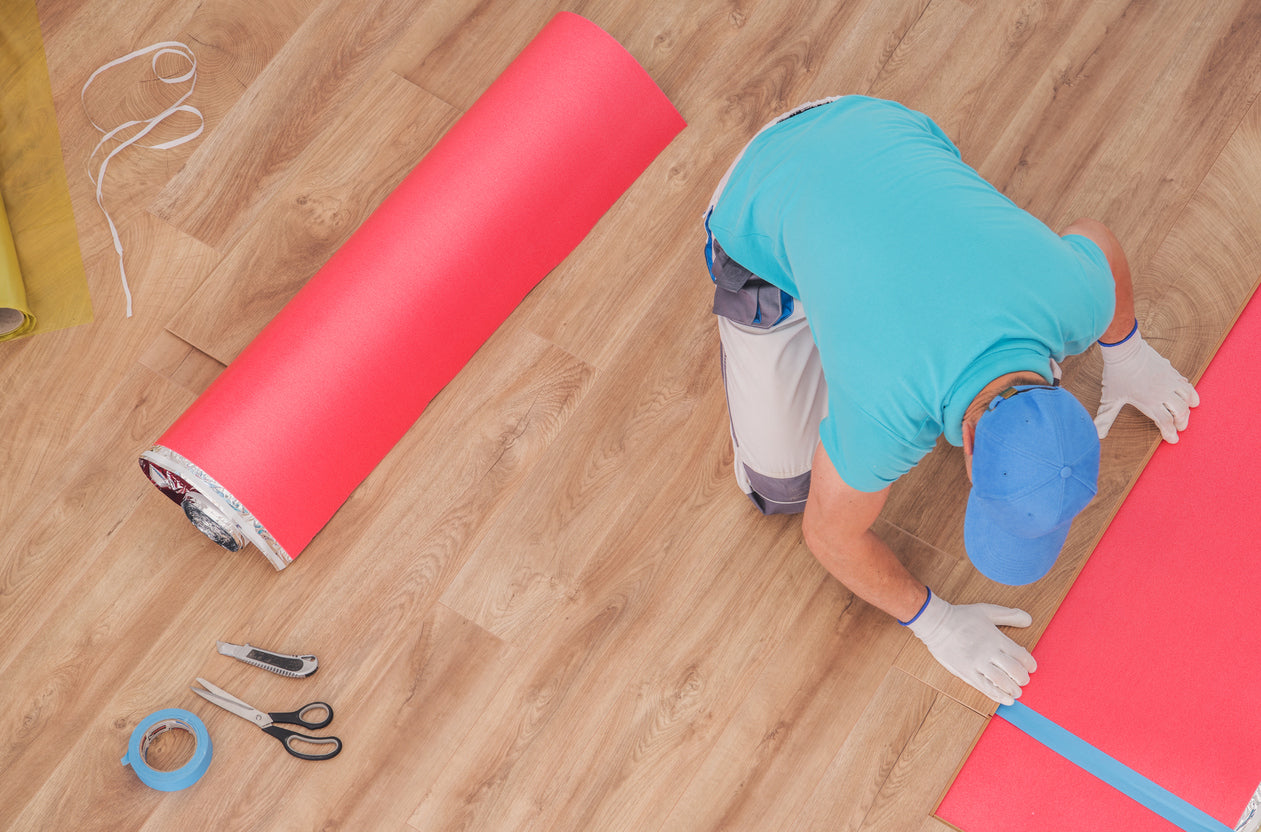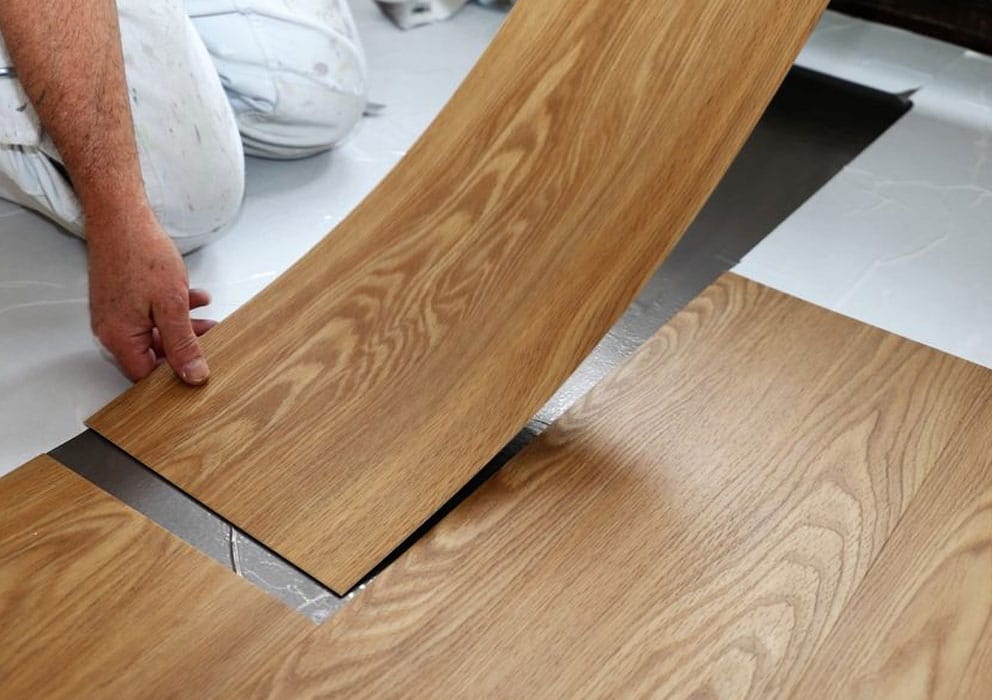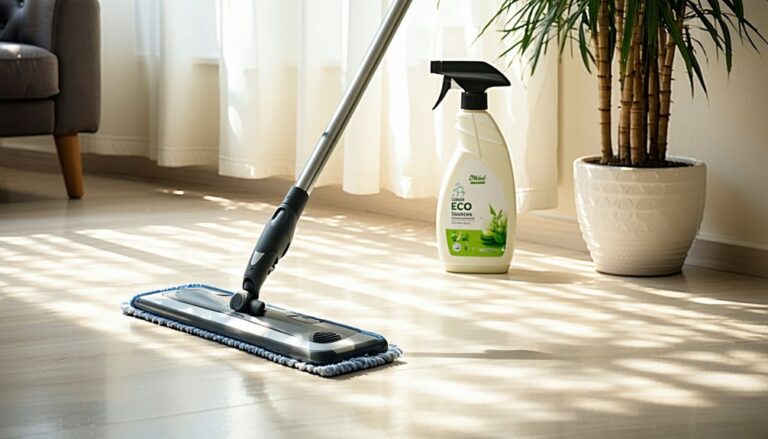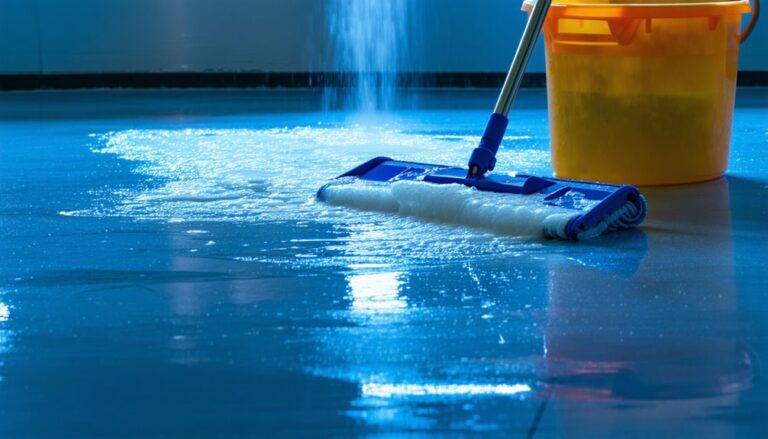When you’re considering new flooring for your home, you want something that looks great and lasts long. Vinyl flooring often stands out as an excellent choice.
But before you make a decision, there’s an important question you need to answer: Does vinyl flooring need underlay? This isn’t just a technical detail; it’s a factor that can impact the comfort, durability, and even the acoustics of your floors.
Imagine stepping onto your new floors, feeling not just the style but the substance beneath your feet. Underlay can make or break that experience. By understanding the role of underlay in vinyl flooring, you can make an informed decision that enhances your home’s aesthetics and functionality. So, if you want your floors to be not just beautiful but also practical, keep reading to discover whether underlay is a necessary addition to your vinyl flooring plans.

What Is Vinyl Flooring?
Vinyl flooring is a popular choice for many homes. It is made from synthetic materials like PVC. This flooring is known for its durability and water resistance. People choose vinyl because it is easy to clean. It can look like wood or stone but costs less. Vinyl is soft underfoot and reduces noise.
There are different types of vinyl flooring. Some types include sheet vinyl, luxury vinyl tiles, and vinyl planks. Sheet vinyl comes in large rolls. Luxury vinyl tiles and planks are in small pieces. They are easy to install and maintain. Vinyl is a great option for kitchens and bathrooms. Its water resistance makes it suitable for these areas.

Types Of Vinyl Flooring
Sheet vinyl comes in a single, large piece. It is soft and flexible. People like it for bathrooms and kitchens. Sheet vinyl is water-resistant. It is also easy to clean. This makes it a good choice for busy homes. Installation is quick and does not need much work. It can cover big spaces without seams. This helps keep water out.
Luxury vinyl planks look like real wood. They are strong and last a long time. People use them in living rooms and bedrooms. Planks are easy to install. They click together like a puzzle. This makes them great for DIY projects. They are also water-resistant. This helps them stay nice in wet places.
Vinyl tiles look like stone or ceramic. They come in small pieces. This lets you make patterns on the floor. Tiles are strong and last years. Installation is simple. You can replace one tile if it gets damaged. This is good for homes with kids or pets. They also handle water well. This makes them perfect for bathrooms.
Role Of Underlay In Flooring
Underlay helps in reducing noise. It makes rooms quieter. Footsteps become softer. Music E TV sounds are less loud. Neighbors will thank you. Quiet homes are peaceful homes.
Underlay stops water from ruining floors. It acts as a shield. Keeps floors dry. pavimenti bagnati can get damaged. Protect your home from water. No water means safe floors.
Walking on soft floors is nice. Underlay makes this possible. It adds cushion to floors. Your feet will feel happy. Even standing long is easy. Floors feel warmer too.
Vinyl Flooring With Built-in Underlay
Vinyl flooring often comes with built-in underlay. This feature saves time and effort. The underlay provides extra comfort underfoot. It also helps with sound insulation, keeping homes quieter. Built-in underlay can make installation easier. No need to buy separate underlay materials. This can reduce costs and simplify the process.
The underlay offers a superficie liscia for the vinyl. It helps prevent wear and tear. This can prolong the life of the flooring. The underlay can also help with temperature control. It keeps floors warmer in winter and cooler in summer. This makes vinyl with built-in underlay a smart choice.
Overall, built-in underlay offers many benefits. It can enhance the flooring experience. Homeowners can enjoy these advantages every day. Choosing vinyl with built-in underlay could be a wise decision.
When To Use Underlay With Vinyl
Concrete is hard and cold. An underlay makes it softer. It also adds warmth. It stops moisture too. Without underlay, floors can feel cold. It is like walking on ice.
Uneven floors cause bumps. Underlay helps smooth these bumps. It makes the floor flat. This helps vinyl lay better. It looks nicer and lasts longer.
Underlay keeps rooms warm. It acts like a blanket. This helps save energy. It also cuts heating costs. Floors feel cozy and nice. It is good for cold places.

Advantages Of Using Underlay
Underlay makes vinyl flooring last longer. It acts as a protective layer. This stops damage from heavy foot traffic. Your floors stay strong and beautiful for many years.
Underlay helps reduce noise. Walking on vinyl floors can be loud. With underlay, sounds are softer and quieter. This is great for peaceful homes.
Floors feel more comfy with underlay. It adds a soft cushion under your feet. Walking and standing become more enjoyable. This makes your home cozy and warm.
Drawbacks Of Using Underlay
Adding an underlay can increase the total cost. Pavimenti in vinile is already a budget-friendly option. But underlay adds extra expenses. It’s important to plan your budget carefully.
Some people might find it tricky to install. Installazione non corretta can lead to problems. The floor might not lay flat. This can cause bumps and uneven surfaces. It is important to follow instructions closely.
Using underlay can change the floor’s height. This might affect doors and other fixtures. They may not fit or move properly. Adjustments might be needed to make everything work well together.
Factors To Consider Before Installation
Floor Type and Condition matters a lot. If the floor is uneven, underlay helps. It makes it smooth. Some floors, like concrete, may need underlay for warmth. In dry areas, underlay can be skipped. Always check the floor type before deciding.
Room Usage is key. Busy rooms need strong floors. Underlay adds strength. It helps in noisy rooms too. Quiet rooms might not need it. Think about how the room is used.
Budget Constraints affect choices. Underlay costs money. Some types are cheaper. Check your budget first. Saving money is important. Sometimes, underlay is not needed. Weigh the costs and benefits.
Expert Tips For Choosing Underlay
Scegliere il giusto material for underlay is important. Foam is soft and comfortable. Felt is durable and strong. Rubber provides good insulation. Each material has its own benefits. Consider what you need. Decide based on comfort, durability, or insulation. Don’t forget to check the price.
Thickness affects comfort and durability. Thicker underlays are softer. They feel nice underfoot. Thinner underlays are cheaper. They might wear out faster. Think about the room you are using. Living rooms may need thicker underlays. Bedrooms can have thinner ones.
Start with clean floors. Lay the underlay flat. Avoid wrinkles and bumps. Use tape to secure edges. Keep underlay tight. Make sure it doesn’t move. Follow any specific instructions from manufacturers. Check alignment with flooring. Proper installation ensures long-lasting floors.
Domande frequenti
What Is Underlay For Vinyl Flooring?
Underlay provides cushioning and insulation beneath vinyl flooring. It enhances comfort by softening the floor. Underlay also offers soundproofing benefits. It helps to reduce noise transmission. Additionally, it can add thermal insulation properties. This helps maintain a warmer environment. Proper underlay ensures longevity and better performance of vinyl flooring.
Is Underlay Necessary For Vinyl Flooring?
Underlay isn’t always necessary for vinyl flooring. Many vinyl options have built-in underlay. These are designed for direct installation. However, underlay can provide added benefits. It may enhance comfort and insulation. Always check the manufacturer’s recommendations. This ensures compatibility and optimal performance.
Can Underlay Improve Vinyl Flooring Durability?
Yes, underlay can improve durability. It provides a protective layer beneath vinyl. This helps prevent damage from subfloor imperfections. Underlay can also distribute weight evenly. This reduces stress on the vinyl surface. As a result, it can extend the flooring’s lifespan.
Proper installation is essential for maximum benefit.
Does Underlay Affect Vinyl Flooring Installation?
Underlay can affect installation ease. Proper preparation is crucial. Ensure the subfloor is clean and level. Some vinyl types require specific underlay. This ensures optimal adhesion and stability. Incorrect underlay choice may lead to issues. Always follow manufacturer guidelines for best results.
Installation can be smooth with the right underlay.
Conclusione
Vinyl flooring can be a great choice for your home. Underlay may enhance comfort and insulation. It reduces noise and improves floor lifespan. Consider room type and subfloor condition. Moist areas like bathrooms might not need underlay. Check manufacturer guidelines for best results.
Proper installation is key for a flawless finish. Remember, each flooring project is unique. Evaluate your needs and preferences carefully. Make an informed decision for a comfortable home. Enjoy the beauty and practicality of vinyl flooring.




